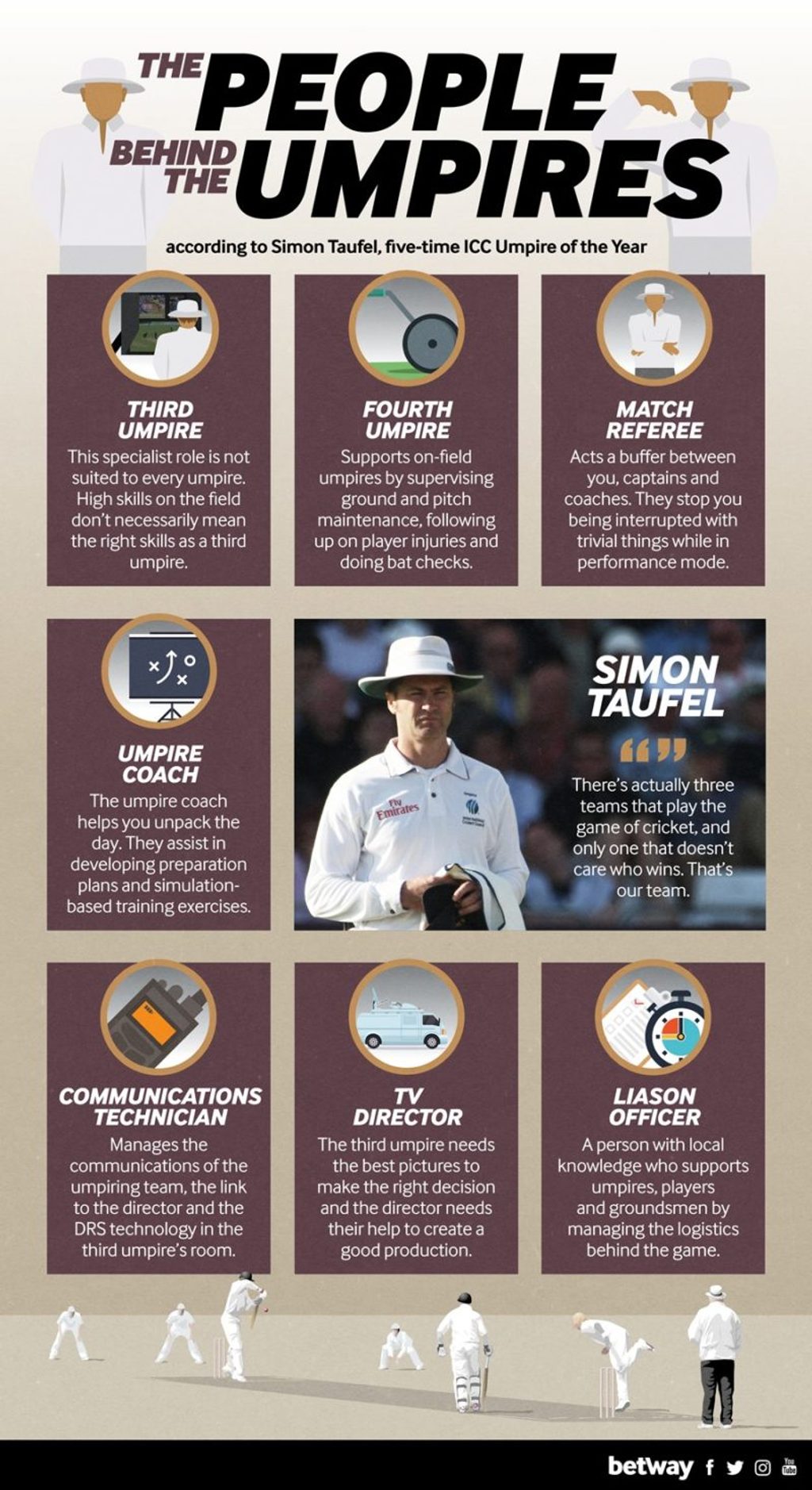
In an interview powered by Betway, ICC umpire Simon Taufel talks ball-tampering, learning from his mistakes, the spirit of cricket, and which umpire has the hardest job.
This interview was brought to you by Betway.
Simon Taufel enjoyed a hugely successful career as an ICC umpire from January 1999 to October 2012, umpiring in 74 Tests, 174 ODIs and 34 T20Is.
Such was his success, he won the the ICC David Shepherd Umpire of the Year award in five consecutive years: “The best way I can describe it is that umpiring chose me. I didn’t choose it,” he says.

Despite all that success, Taufel would change one thing about the way he went about his occupation. “If I did my career again, I would probably want to talk more about my mistakes,” he says.
“To share my shortcomings more with my colleagues after a day’s play, rather than keep them to myself and have to deal with them on your own in your hotel room.”
Taufel’s career coincided with a revolutionary period for umpiring, as there emerged the introduction of the Decision Review System (DRS), which has received both praise and criticism from several quarters.
[caption id=”attachment_91626″ align=”alignnone” width=”1024″] Umpiring has changed with the introduction of DRS[/caption]
Umpiring has changed with the introduction of DRS[/caption]
To listen to Taufel on the matter is an eye-opening experience. “I don’t think DRS has necessarily made umpiring easier or more difficult,” he claims. “It’s just made it different.”
“Pre-DRS, you’d deal with the error later. With DRS, you’ve got to deal with it at the time.
“You hear your decision dissected in your ear piece, in front of millions of people, and then, after 90 seconds, two minutes, you have to publicly change your decision and somehow re-gather your thoughts.
“You can feel a bit embarrassed and humiliated. It’s really tough to move on and focus on that next delivery.”
[breakout id=”0″][/breakout]A moment that shocked the cricketing world in 2018 was when Australia’s Cameron Bancroft was caught on camera using sandpaper to tamper with the ball in the Cape Town Test against South Africa. Taufel expresses the difficulties for the umpire who has to watch such footage away from the field.
“The third umpire, quite easily, has got the toughest job out of the whole umpiring team,” he adds. “Their job is to watch the TV as their primary focus. There should be nothing that goes out to people in their lounge rooms that is missed by the third umpire.”
With the actions of the Australian team, many called into question how the game of cricket should be played – a topic that Taufel believes is of great importance.
[caption id=”attachment_77396″ align=”alignnone” width=”800″] Cameron Bancroft and Steve Smith in discussions with umpires after the batsman used sandpaper[/caption]
Cameron Bancroft and Steve Smith in discussions with umpires after the batsman used sandpaper[/caption]
“I hold the spirit of cricket close to my heart. Results come and go, but who we are and how we play really defines us.
“We are guardians of the game of cricket. We have to leave it in good shape for the next generation. The only way that we can do that is through adherence to the laws and to the spirit of that game.
“That’s what I would say to Australian cricket and that’s what I would say to the global game: learn from what’s happened and use the opportunity to make the game stronger than it’s ever been before.”








